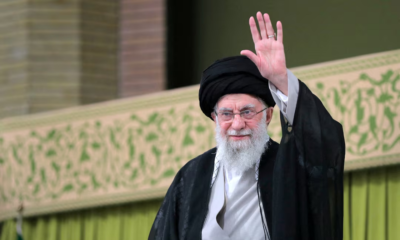COVID-19
India’s COVID-19 case total nears 20 million

India on Monday reported more than 300,000 new coronavirus cases for a 12th straight day, taking its overall caseload to just shy of 20 million, while deaths from COVID-19 rose by 3,417.
With 368,147 new cases over the past 24 hours, India’s total infections stand at 19.93 million, while total fatalities are 218,959, according to health ministry data.
Medical experts say real numbers across the country of 1.35 billion may be five to 10 times higher than the official tally.
Hospitals have filled to capacity, medical oxygen supplies have run short and morgues and crematoriums have been swamped as the country deals with the surge in cases.
At least 11 states and union territories have imposed some form of restrictions to try and stem infections, but Prime Minister Narendra Modi’s government is reluctant to impose a national lockdown, concerned about the economic impact.
“In my opinion, only a national stay at home order and declaring medical emergency will help to address the current healthcare needs,” Bhramar Mukherjee, an epidemiologist with the University of Michigan said on Twitter.
“The # of active cases is accumulating, not just the daily new cases. Even the reported numbers state there are around 3.5M active cases.”
The spike in infections is India’s biggest crisis since Modi took office in 2014. Modi has been criticised for not taking steps earlier to curb the spread and for letting millions of largely unmasked people attend religious festivals and crowded political rallies in five states during March and April.
A forum of scientific advisers set up by the government warned Indian officials in early March of a new and more contagious variant of the coronavirus taking hold in the country, five scientists who are part of the forum told Reuters.
Despite the warning, four of the scientists said the federal government did not seek to impose major restrictions to stop the spread of the virus.
It remains to be seen how his handling of the crisis might affect Modi or his party politically. The next general election is due in 2024. Modi’s party was defeated in India’s West Bengal state in results declared on Sunday, although it wonin the neighbouring state of Assam.
Leaders of 13 opposition parties on Sunday signed a letter urging Modi to immediately launch free national vaccination and to prioritise oxygen supply to hospitals and health centres.
Several states have postponed widening a vaccination drive for adults that was to start on Saturday due to a lack of vaccines. The national health ministry says states have 10 million vaccines stockpiled and 2 million more coming in the next three days.
Despite being the world’s biggest producer of vaccines, India does not have enough for itself – undermining a plan to ramp up and widen inoculation from Saturday. Only about 9% of its 1.4 billion people have had a dose.
India has struggled to increase capacity beyond 80 million doses a month due to lack of raw materials and a fire at the Serum Institute, which makes the AstraZeneca vaccine.
International aid has been pouring into India.
Britain will send another 1,000 ventilators to India, the government said on Sunday. Prime ministers Boris Johnson and Modi are scheduled to talk on Tuesday.
The Indian COVID-19 variant has now reached at least 17 countries including Britain, Switzerland and Iran, leading several governments to close their borders to people travelling from India.
COVID-19
WHO declares end to COVID global health emergency

The World Health Organization said Friday that COVID-19 no longer qualifies as a global emergency, marking a symbolic end to the devastating coronavirus pandemic that triggered once-unthinkable lockdowns, upended economies and killed millions of people worldwide.
The announcement, made more than three years after WHO declared the coronavirus an international crisis, offers some relief, if not an ending, to a pandemic that stirred fear and suspicion, hand-wringing and finger-pointing across the globe, AP reported.
The U.N. health agency’s officials said that even though the emergency phase was over, the pandemic hasn’t finished, noting recent spikes in cases in Southeast Asia and the Middle East.
WHO says thousands of people are still dying from the virus every week, and millions of others are suffering from debilitating, long-term effects.
“It’s with great hope that I declare COVID-19 over as a global health emergency,” WHO Director-General Tedros Adhanom Ghebreyesus said.
“That does not mean COVID-19 is over as a global health threat,” he said, warning that new variants could yet emerge. Tedros noted that while the official COVID-19 death toll was 7 million, the real figure was estimated to be at least 20 million.
Tedros said the pandemic had been on a downward trend for more than a year, acknowledging that most countries have already returned to life before COVID-19.
He bemoaned the damage that COVID-19 had done to the global community, saying the pandemic had shattered businesses, exacerbated political divisions, led to the spread of misinformation and plunged millions into poverty.
When the U.N. health agency first declared the coronavirus to be an international crisis on Jan. 30, 2020, it hadn’t yet been named COVID-19 and there were no major outbreaks beyond China.
More than three years later, the virus has caused an estimated 764 million cases globally and about 5 billion people have received at least one dose of vaccine.
In the U.S., the public health emergency declaration made regarding COVID-19 is set to expire on May 11, when wide-ranging measures to support the pandemic response, including vaccine mandates, will end. Many other countries, including Germany, France and Britain, dropped most of their provisions against the pandemic last year.
When Tedros declared COVID-19 to be an emergency in 2020, he said his greatest fear was the virus’ potential to spread in countries with weak health systems.
Most recently, WHO has struggled to investigate the origins of the coronavirus, a challenging scientific endeavor that has also become politically fraught.
COVID-19
COVID-19 in Iran: Nearly 900 new cases, 24 deaths recorded

The Iranian health ministry announced on Sunday that more than 890 new cases of COVID-19 have been identified across the country during the past 24 hours, adding that 24 patients have died in the same period of time, Fars News Agency reported.
“A sum of 891 new patients infected with COVID-19 have been identified in the country based on confirmed diagnosis criteria during the past 24 hours,” the Iranian Health Ministry’s Public Relations Center said on Sunday, adding, “454 patients have been hospitalized during the same time span.”
The ministry’s public relations center said 611 people infected with COVID-19 are in critical condition.
COVID-19
China says 200 million treated, pandemic ‘decisively’ beaten

China says more than 200 million of its citizens have been diagnosed and treated for COVID-19 since it lifted strict containment measures beginning in November.
With 800,000 of the most critically ill patients having recovered, China has “decisively beaten” the pandemic, according to notes from a meeting of the ruling Communist Party’s all-powerful Politburo Standing Committee presided over by President and party leader Xi Jinping, AP reported.
China enforced some of the world’s most draconian lockdowns, quarantines and travel restrictions and still faces questions about the origins of the virus that was first detected in the central Chinese city of Wuhan in late 2019. Heavy-handed enforcement prompted rare anti-government protests and took a heavy toll on the world’s second-largest economy.
The official Xinhua News Agency quoted Xi as saying that policies to control the outbreak had been “entirely correct.” The abrupt lifting in November and December of the “zero COVID” policy that had sought to eliminate all cases of the virus led to a surge in infections that temporarily overwhelmed hospitals.
Case numbers have since peaked and life has largely returned to normal, although international travel in and out of China has yet to return to pre-pandemic levels.
China is now transitioning to a post-pandemic stage after a fight against the outbreak that was “extraordinary in the extreme,” Xinhua said.
The government will continue to “optimize and adjust prevention and control policies and measures according to the times and situations with a strong historical responsibility and strong strategic determination,” Xinhua said.
-
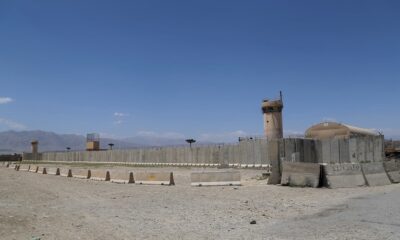
 Latest News4 days ago
Latest News4 days agoNo American military presence in Bagram: US defense official
-
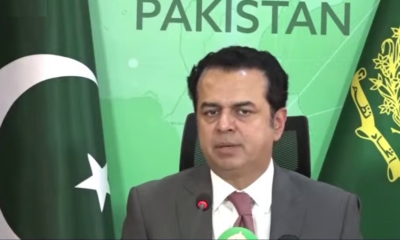
 Latest News5 days ago
Latest News5 days agoNo new deadline will be given for Afghan refugees: Pakistani official
-

 Latest News5 days ago
Latest News5 days agoIranian economic delegation visits western Afghanistan
-
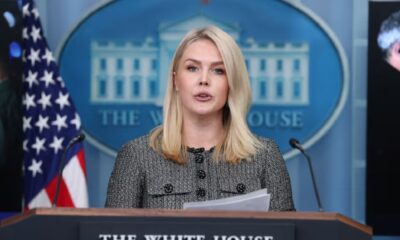
 World4 days ago
World4 days agoWhite House says ‘all hell to pay’ should Iran develop nuclear weapon
-

 Latest News4 days ago
Latest News4 days agoTrump ends protected status for thousands of Afghans, Cameroonians
-

 Latest News4 days ago
Latest News4 days ago‘No one wants to see a nuclear-armed Iran,’ says former US ambassador to Afghanistan
-
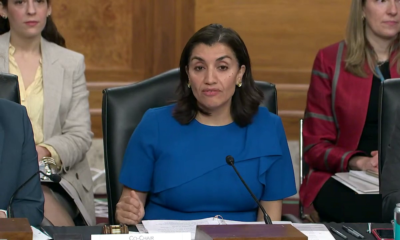
 Latest News4 days ago
Latest News4 days agoUS Senate convenes commission to review early years of Afghanistan war
-

 Regional3 days ago
Regional3 days agoIran, US hold ‘positive’ talks in Oman, agree to resume next week






